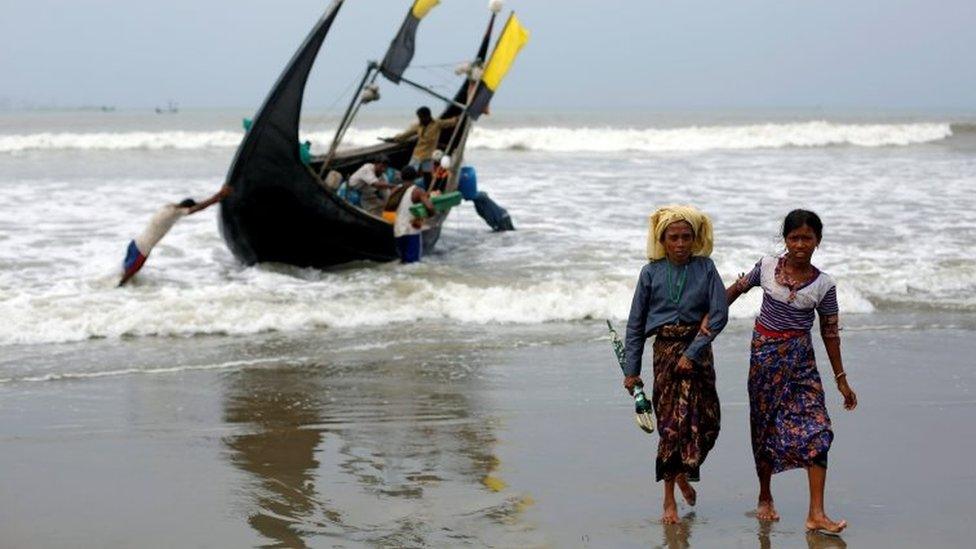Rohingya 'extremists' trying to build stronghold - Myanmar army
- Published
Myanmar's top general has blamed Rohingya people for the crisis that has led to hundreds of thousands crossing into Bangladesh.
Gen Min Aung Hlaing said the Rohingya "has never been an ethnic group", and accused "extremists" of trying to form a stronghold in northern Rakhine state.
His army is accused of targeting civilians in an offensive there, forcing Rohingya to flee.
Myanmar denies this, and says it is responding to deadly militant attacks.
The UN has warned that offensive against the Rohingya - most of whom are Muslims, while Myanmar is 90% Buddhist - could amount to ethnic cleansing.
Watch: Who are the Rohingya?
On Saturday UN Secretary General Antonio Guterres warned that the country's de facto leader Aung San Suu Kyi had "a last chance" to halt the army offensive before the situation becomes "absolutely horrible".
In a Facebook post, external on Sunday, Gen Min Aung Hlaing urged people and the media in Myanmar to unite over the "issue" of the Rohingya.
He said the military operation began after 93 clashes with "extremist Bengalis" - referring to Rohingya militants - that began on 25 August.
The violence, he added, was an organised attempt to build a stronghold in Rakhine state.
"They have demanded recognition as Rohingya, which has never been an ethnic group in Myanmar. (The) Bengali issue is a national cause and we need to be united in establishing the truth," his post said.
Rohingya militants did attack police posts in northern Rakhine on 25 August, killing 12 security personnel.
But Rohingya who have fled Myanmar since then say the military responded with a brutal campaign, burning villages and attacking civilians in a bid to drive them out.
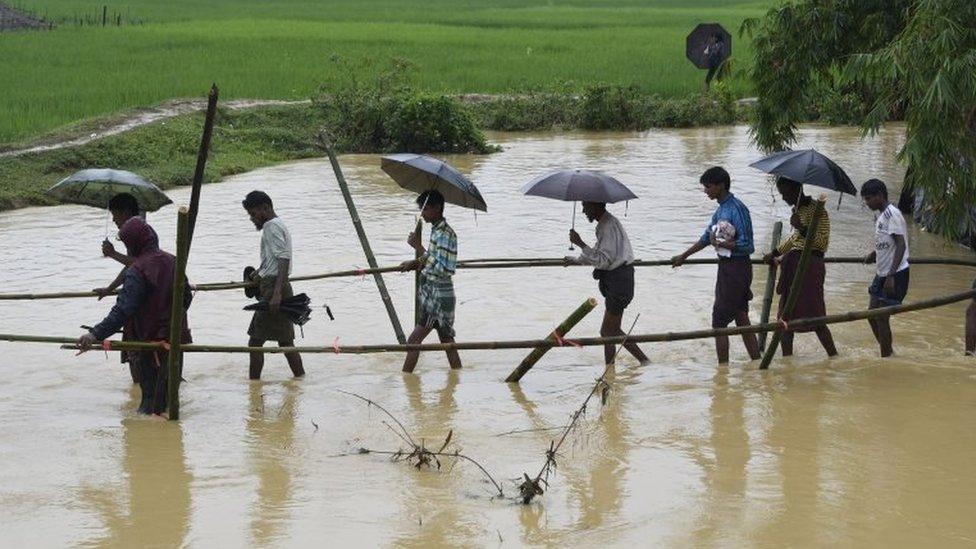
Bangladesh plans to restrict the movement of Rohingya who have fled Myanmar
The army's defence comes amid condemnation of the violence from across the world.
Aung San Suu Kyi is a Nobel Peace laureate who spent years under house arrest in junta-run Myanmar (Burma) but has played a key political role since her party won democratic polls in 2015. She is now facing growing criticism over the Rohingya issue.
On Sunday, UN chief Antonio Guterres urged her to stop the offensive in her address to the nation on Tuesday, warning that if she failed to so, "I don't see how this can be reversed in the future".
Speaking to the BBC's HARDtalk programme, the secretary general said it was clear that Myanmar's military "still have the upper hand" in the country.
Aung San Suu Kyi will not be attending the UN General Assembly in New York, and has claimed that the crisis is being distorted by a "huge iceberg of misinformation".
She said tensions were being fanned by fake news promoting the interests of terrorists.
Bangladesh recently announced it was limiting the movement of more than 400,000 Rohingya who have fled from Myanmar.
Bangladesh also announced plans to build shelters for up to 400,000 people near the city of Cox's Bazar.
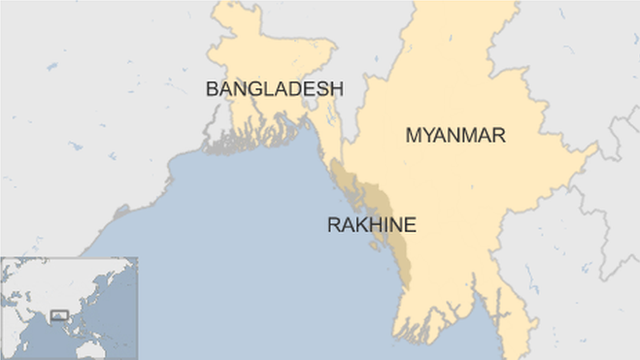
The violence has been concentrated in Myanmar's Rakhine area
The Rohingya, a stateless minority, have long experienced persecution in Myanmar, which says they are illegal immigrants.
Some who fled from Rakhine state told the BBC earlier this month about killings, rape and even massacres, while inside Rakhine, a BBC crew witnessed charred homes inside Rakhine.
- Published12 September 2017
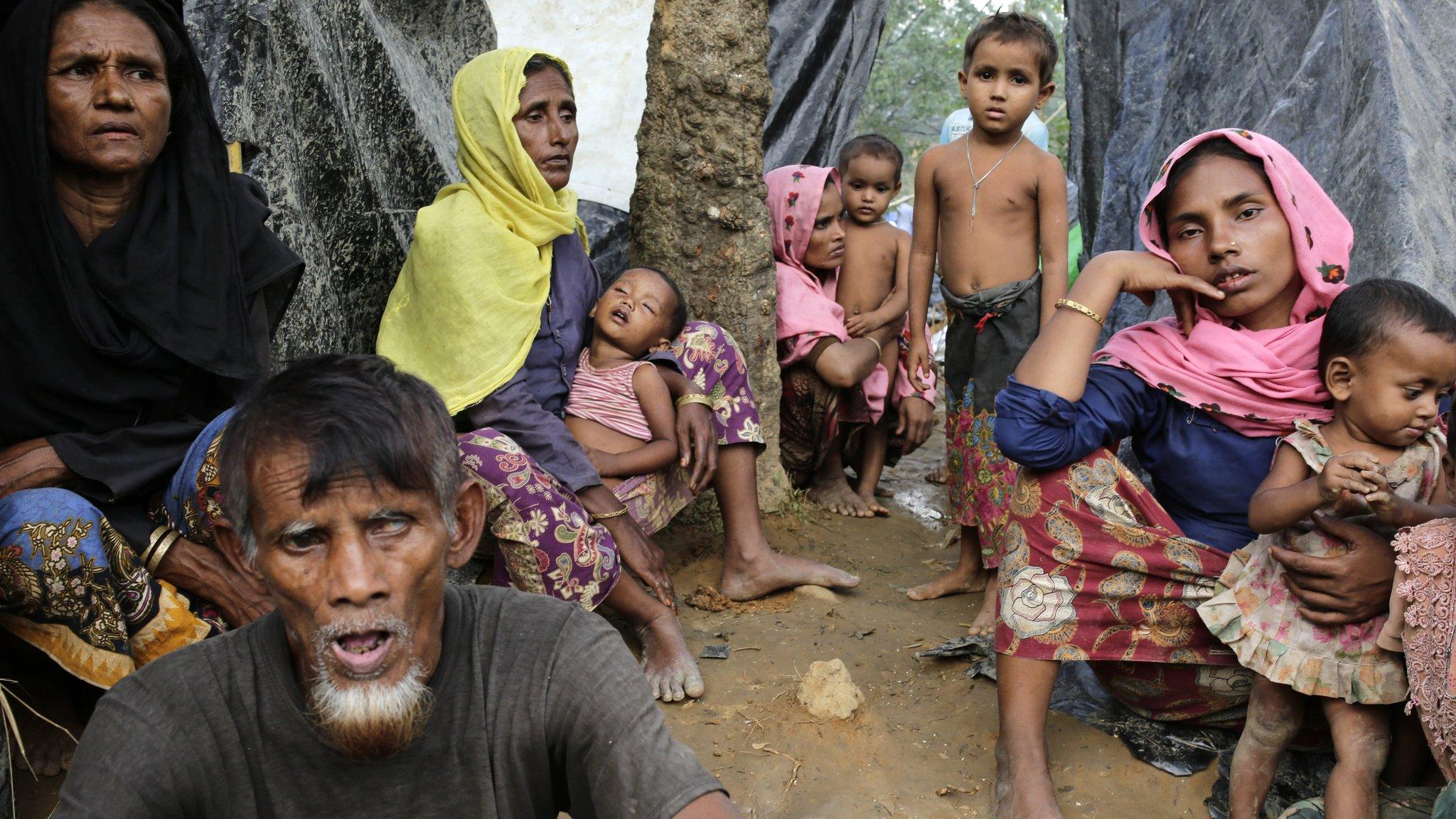
- Published11 September 2017
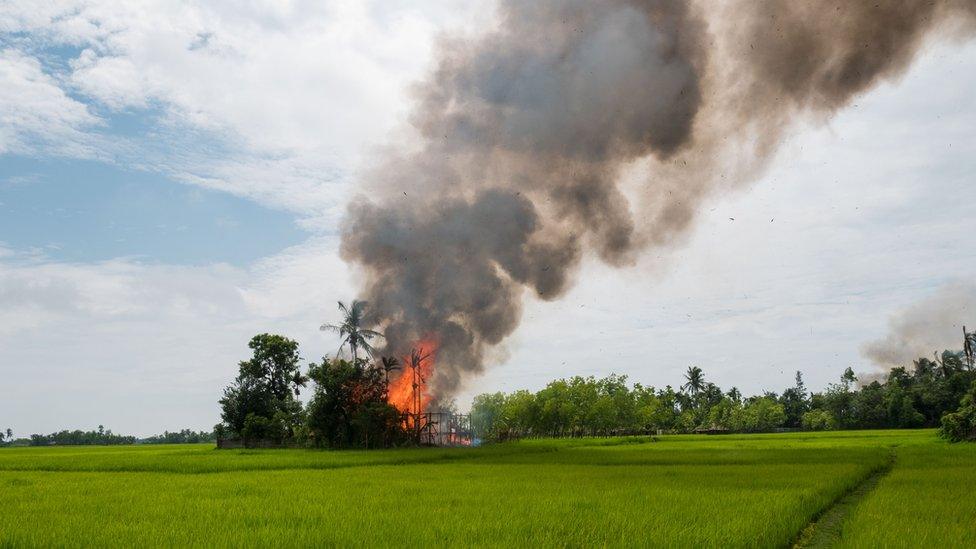
- Published19 September 2017
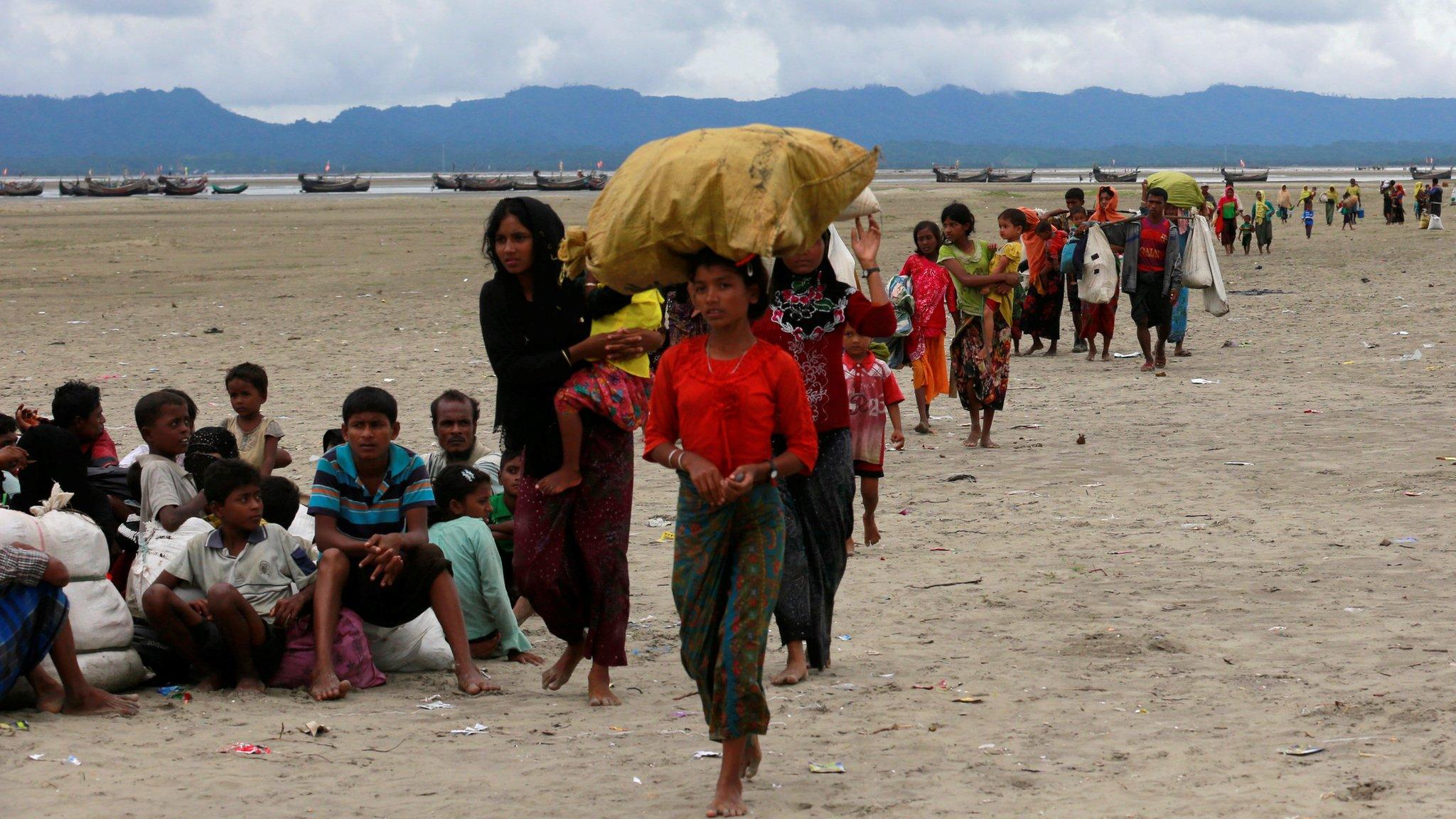
- Published7 September 2017
